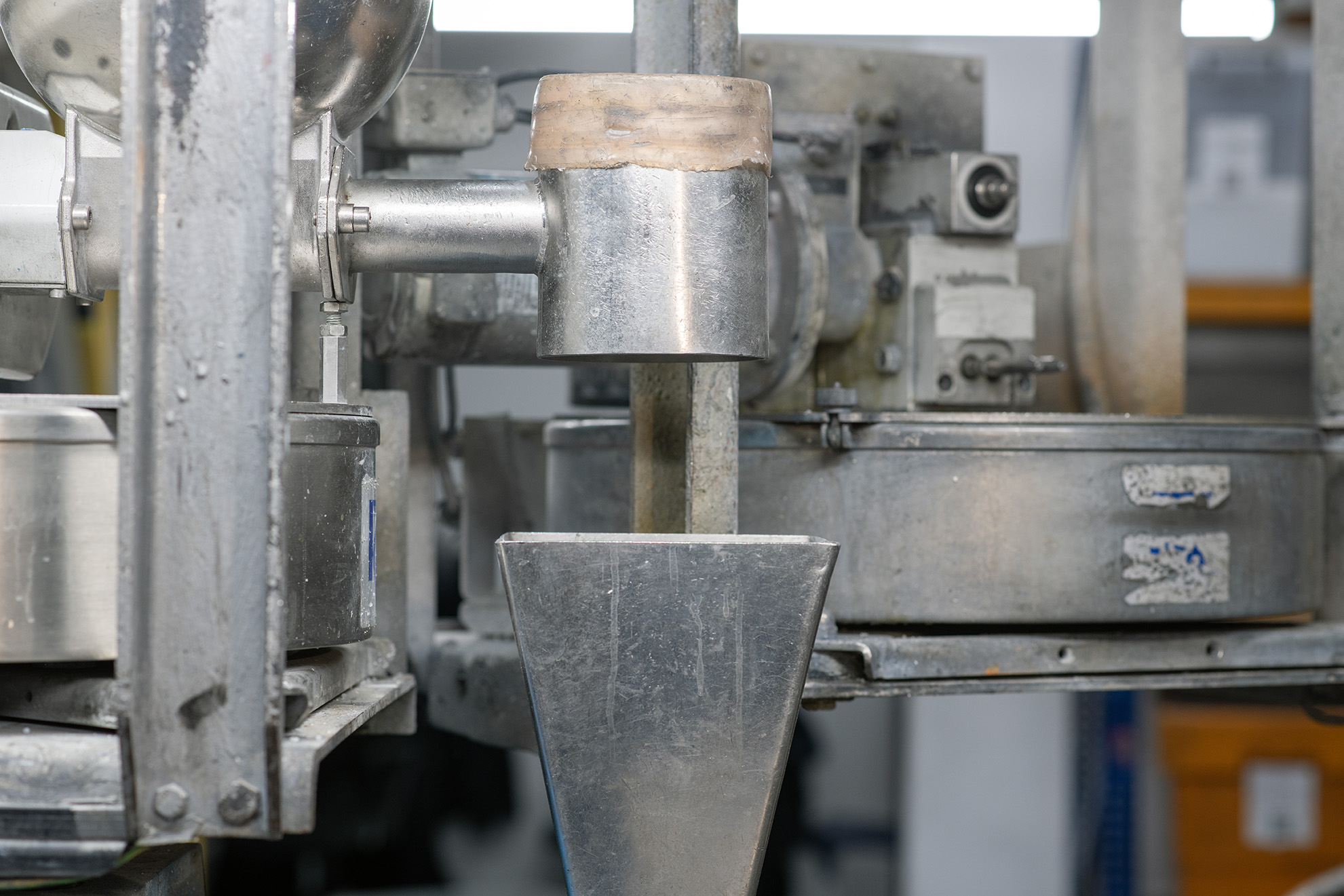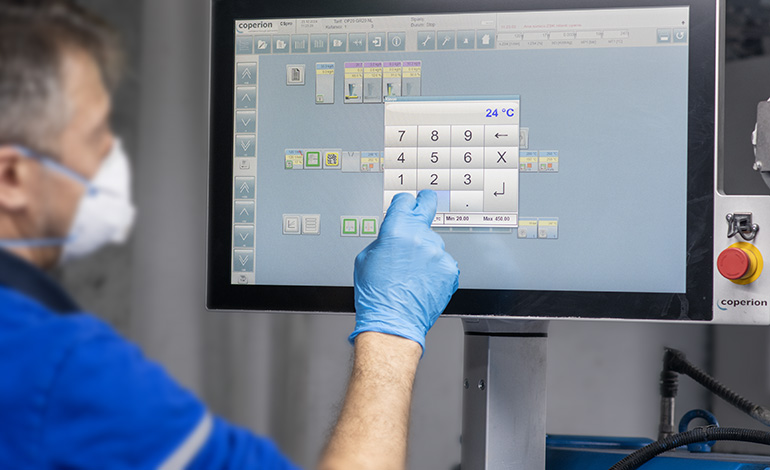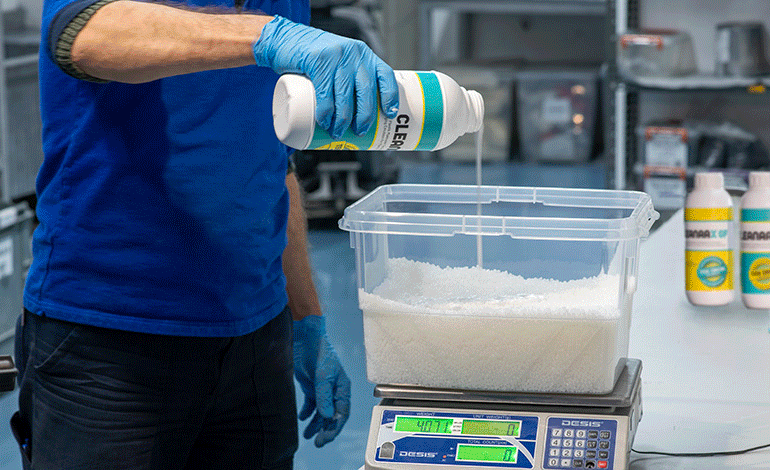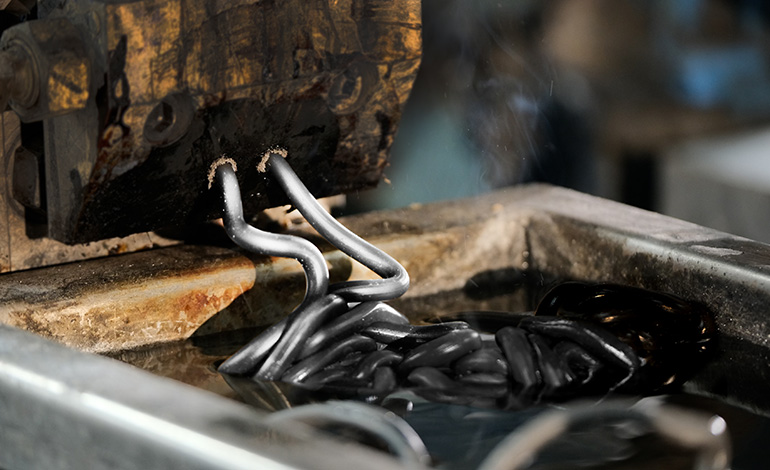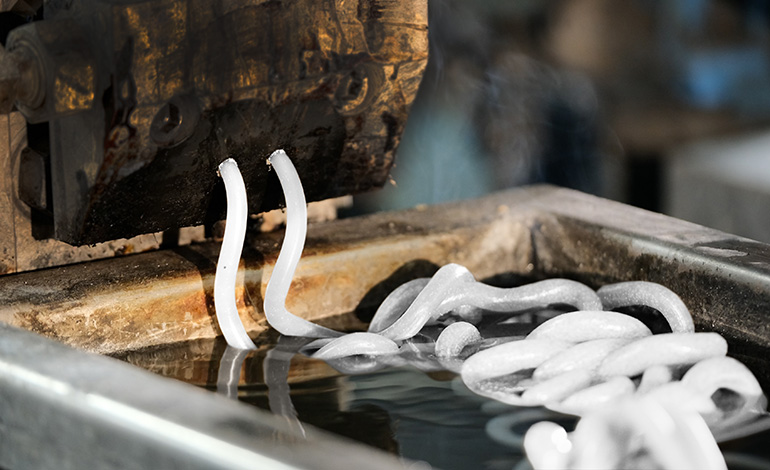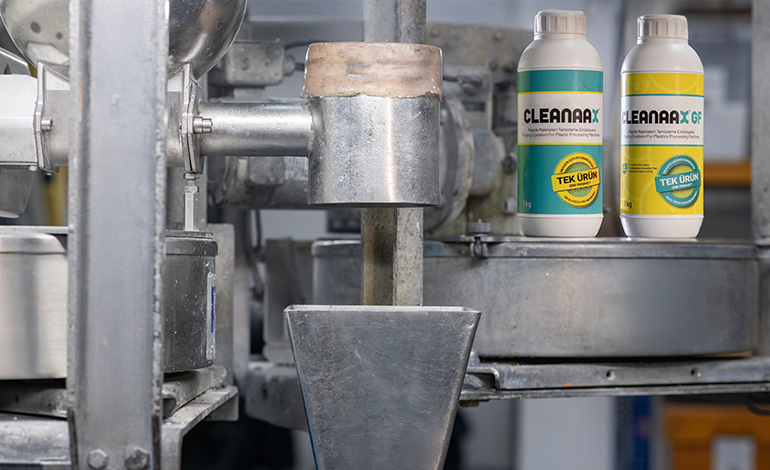| Processing Temperature (°C) | Purging Screw Temperature (°C) | Amount of CLEANAAX® and CLEANAAX®GF in the Purging Mixture (%gr/1 kg) | |||
|---|---|---|---|---|---|
| Acrylnitrile-butadienes styrene | ABS | 200-220 | 170-190 | 3-4 | 30-40 |
| Styrene-acrylonitrile | SAN | 200-220 | 170-190 | 3-4 | 30-40 |
| Thermopasticpolyurethane | TPU | 200-220 | 180-200 | 3-4 | 30-40 |
| Polyethylene | HDPE/LDPE | 180-220 | 150-190 | 3-4 | 30-40 |
| Polypropylene | PP | 180-220 | 150-190 | 3-4 | 30-40 |
| Polycarbonate | PC | 240-280 | 210-250 | 3-4 | 30-40 |
| Polyethyleneterephatalate | PET | 180-220 | 150-190 | 3-4 | 30-40 |
| Polybuthyleneterephatalate | PBT | 230-270 | 200-240 | 3-4 | 30-40 |
| Polyvinylchloride | PVC | 160-180 | - | 4 | 40 |
| Polystyrene | PS | 200-220 | 170-190 | 3-4 | 30-40 |
| Polyoxymethylene | POM | 170-210 | 140-180 | 3-4 | 30-40 |
| Polyamide 6 | PA6 | 220-260 | 200-230 | 3-4 | 30-40 |
| Polyamide 6-6 | PA66 | 260-290 | 230-260 | 3-4 | 30-40 |
| Polymethyl methacrylate | PMMA | 200-230 | 170-200 | 3-4 | 30-40 |
| Styrene-butadiene-styrene | SBS | 170-180 | 140-150 | 3-4 | 30-40 |
| Styrene-ethylene-butadiene | SEBS | 180-200 | 150-170 | 3-4 | 30-40 |
| Cellulose-acetate | CA | 230-260 | 200-230 | 3-4 | 30-40 |
| Polyphenylenesulfide | PPS | 310-340 | 280-310 | 3-4 | 30-40 |
| Polyether ether ketone | PEEK | 350-380 | 320-350 | 3-4 | 30-40 |
| Polysulfone | PSU | 350-370 | 320-340 | 3-4 | 30-40 |
| Polyphtalamide | PPA | 310-330 | 280-300 | 3-4 | 30-40 |
| Ethylene vinil acetate | EVA | 200-220 | 180-200 | 3-4 | 30-40 |
| Polyether sulfone | PESU | 350-380 | 320-350 | 3-4 | 30-40 |
| Polyetherimide | PEI | 350-380 | 320-350 | 3-4 | 30-40 |
| Polyketone | PK | 240-260 | 220-230 | 3-4 | 30-40 |
| Screw Diameter (mm) |
20-40 | 40-50 | 50-60 | 60-80 | 80-100 | 100-120 | 120-150 | 150-175 | 175-200 |
| Amount of carrier plastic raw material, kg | 0,5-1 kg | 1-3 kg | 3-5 kg | 5-10 kg | 10-25 kg | 25-35 kg | 35-70 kg | 70-90 kg | 90-150 kg |
| Amount of CLEANAAX® and CLEANAAX®GF , gr. 3-4% of the total carrier polymer, gr. | 15-40 gr | 30-120 gr | 90-200 gr | 150-400 gr | 300-1000 gr | 750-1400 gr | 1050-2080 gr | 2100-3600 gr | 2700-6000 gr |
- The recommended approximate values depend on screw configuration and the level of contamination.
- CLEANAAX® and CLEANAAX®GF is compatible with all known commercial polymers and processing temperatures up to 400°C.
